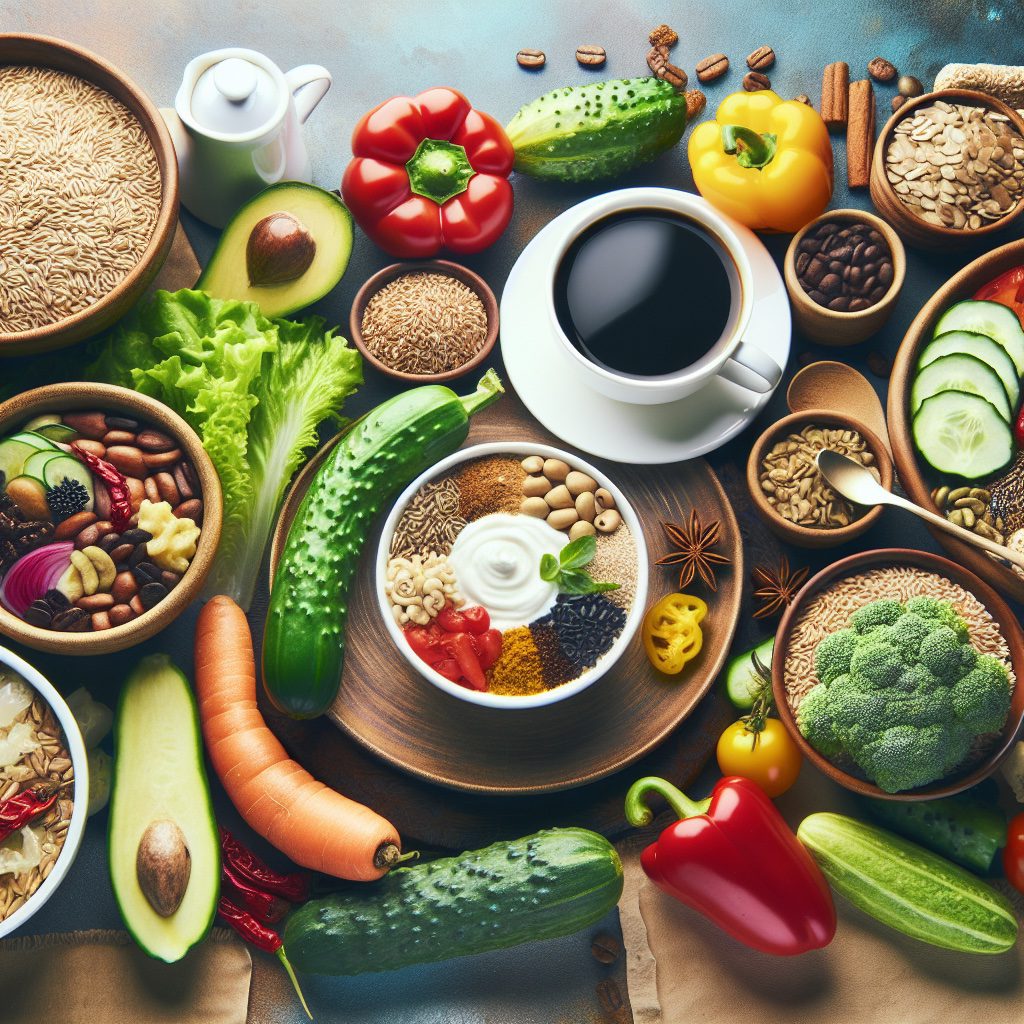Have you ever finished a tough workout only to feel completely drained of energy? That post-exercise exhaustion is your body’s way of telling you it needs nourishment to recover and rebuild. While modern nutrition science offers plenty of recovery solutions, ancient Eastern wisdom has been addressing this need for thousands of years with healing foods specifically designed to restore strength and vitality.
As someone who values the delicate balance between physical activity and proper nourishment, I’ve discovered that what you eat after exercising can make all the difference in how you feel the next day. Eastern nutrition approaches post-workout recovery not just as refueling, but as an opportunity to bring your body back into harmony using nature’s gifts.
Why Post-Workout Nutrition Matters
When you exercise, especially intensely, your body depletes its glycogen stores, breaks down muscle fibers, and loses important electrolytes through sweat. The food you consume afterward plays a crucial role in:
- Replenishing energy reserves
- Repairing muscle tissue
- Reducing inflammation and oxidative stress
- Restoring the body’s balance
Eastern nutrition philosophy has always emphasized the importance of eating for energy restoration, viewing food not just as fuel but as medicine that helps maintain harmony between body and nature. This holistic approach recognizes that proper nourishment after physical exertion supports both immediate recovery and long-term wellness.
Essential Nutrients for Post-Workout Recovery
Before diving into specific healing foods, let’s understand the key nutrients your body craves after a workout:
Carbohydrates: After exercise, your muscles are hungry for glycogen replenishment. Complex carbohydrates provide a steady release of energy to restore what was used during your workout.
Proteins: The building blocks for muscle repair, proteins provide essential amino acids that help mend the microscopic tears in muscle fibers that occur during exercise.
Healthy Fats: Often overlooked in recovery nutrition, these fats help reduce inflammation and support cellular repair processes.
Electrolytes: These minerals (sodium, potassium, magnesium, and calcium) are lost through sweat and need to be replenished to maintain proper fluid balance and muscle function.
Antioxidants: Exercise creates oxidative stress in the body. Antioxidants help neutralize free radicals and reduce the resulting inflammation.
The beauty of ancient Eastern healing foods is that they often contain complex combinations of these nutrients in forms that are easily absorbed and utilized by the body. Rather than focusing on isolated supplements, Eastern nutrition emphasizes whole foods that provide balanced nourishment.
7 Ancient Eastern Foods to Restore Energy and Strength
Now, let’s explore seven traditional Eastern foods known for their exceptional ability to rebuild strength and restore energy after physical exertion:
1. Bone Broth
Long before protein shakes became popular, Eastern cultures were simmering bones to create nutrient-rich broths that support recovery.
Why it works: Bone broth contains collagen, gelatin, glutamine, and minerals that support joint health and muscle repair. The easily digestible proteins and amino acids make it an ideal post-workout food.
How to use it: Sip warm bone broth within an hour after your workout, or use it as a base for a recovery soup with added vegetables and lean protein. Traditional Chinese medicine practitioners often recommend chicken bone broth for its warming properties that help restore energy.
2. Miso Soup with Seaweed
This Japanese staple combines fermented soybean paste with mineral-rich seaweed for a perfect recovery meal.
Why it works: Miso provides complete protein while being gentle on digestion. Seaweed contributes essential minerals, including iodine, iron, and calcium. Together, they replenish electrolytes and provide easily accessible nutrition when your body needs it most.
How to use it: Enjoy a bowl of miso soup with added tofu and seaweed after your workout. For additional recovery benefits, include some cooked brown rice or soba noodles for complex carbohydrates.
3. Congee (Rice Porridge)
This simple rice porridge has been used for centuries throughout Asia as a healing food for recovery and restoration.
Why it works: Congee is exceptionally easy to digest, making it perfect when your body needs to focus energy on repair rather than digestion. The slow-cooking process breaks down the rice, releasing its nutrients and creating a soothing, easily absorbed carbohydrate source that helps replenish glycogen stores.
How to use it: Prepare congee with ginger and a small amount of protein such as shredded chicken or soft tofu. Eat within 1-2 hours after exercising to maximize glycogen replenishment.
4. Red Dates and Goji Berries
These traditional Chinese superfoods have been used for thousands of years to boost energy and support recovery.
Why it works: Red dates (jujubes) are rich in carbohydrates and contain significant amounts of vitamin C, which helps with collagen synthesis necessary for tissue repair. Goji berries provide antioxidants that combat exercise-induced oxidative stress while contributing essential minerals.
How to use it: Make a simple tea by simmering red dates and goji berries in water, or add them to your post-workout oatmeal or congee. These sweet, healing foods provide natural energy without processed sugars.
5. Black Sesame Seeds
These tiny seeds pack a powerful nutritional punch for muscle recovery.
Why it works: Black sesame seeds are rich in protein, healthy fats, calcium, and magnesium—all critical for muscle function and repair. In Traditional Chinese Medicine, they’re specifically valued for strengthening the kidneys, which govern energy in the body.
How to use it: Blend a tablespoon into your post-workout smoothie, sprinkle over rice dishes, or enjoy black sesame paste with a small amount of honey as a recovery treat.
6. Astragalus Root (Huang Qi)
This adaptogenic herb has been used in Traditional Chinese Medicine for centuries to boost energy and enhance recovery.
Why it works: Astragalus helps improve circulation, reduce inflammation, and strengthen the body’s resistance to stress. It’s particularly valued for its ability to restore depleted energy without the jittery effects of stimulants.
How to use it: Simmer astragalus root in soups and broths, or drink as a tea after workouts. For convenience, it’s also available as a powder that can be added to smoothies.
7. Sweet Potatoes with Ginger
This simple combination provides an ideal balance of carbohydrates and anti-inflammatory compounds.
Why it works: Sweet potatoes offer complex carbohydrates that replenish glycogen stores gradually without spiking blood sugar. Ginger contains gingerols and shogaols, compounds that reduce muscle soreness and inflammation after exercise.
How to use it: Enjoy baked sweet potatoes with a sprinkle of ginger powder, or make a simple sweet potato and ginger soup as a recovery meal. The natural sweetness satisfies sugar cravings while providing sustained energy.
The Eastern Approach to Recovery Nutrition
What makes these healing foods particularly effective is not just their individual nutrient profiles but the Eastern philosophy behind their use. Eastern nutrition emphasizes:
Balance: Rather than focusing exclusively on protein (as many Western recovery approaches do), Eastern nutrition balances carbohydrates, proteins, and fats to restore overall harmony.
Seasonality: Traditional Eastern diets adapt food choices to support the body’s changing needs throughout the year. For example, warming foods like bone broth are emphasized after winter workouts, while cooling foods like cucumber might be preferred after summer exercise.
Individual Constitution: Eastern nutrition recognizes that different body types have different recovery needs. Listening to your body’s specific signals helps determine which healing foods will best support your unique recovery process.
Whole Foods Over Supplements: Instead of relying on processed recovery drinks or protein powders, Eastern nutrition emphasizes whole, minimally processed foods that the body can recognize and utilize efficiently.
This holistic approach aligns perfectly with what we now know about recovery nutrition: that it’s not just about individual nutrients but about providing the body with balanced, natural sources of nourishment that support overall wellness.
Listening to Your Body’s Voice
As you explore these ancient healing foods for post-workout recovery, remember that true nourishment comes from developing a relationship with your body and understanding its unique needs. After exercising, take a moment to check in with yourself: Are you craving warming foods or cooling ones? Do you need quick energy or sustained nourishment?
These subtle signals can guide you toward the right choices for your specific situation. Some days, your body might benefit most from the warming comfort of bone broth; other times, the gentle carbohydrates of congee might be exactly what you need.
By incorporating these ancient Eastern foods into your post-workout routine, you’re not just addressing immediate recovery needs but embracing a philosophy that views food as medicine and nourishment as a path to balance. These healing foods for energy don’t just rebuild your physical strength—they support your overall wellbeing by working in harmony with your body’s natural processes.
The next time you finish a workout, instead of reaching for a commercial protein shake, consider these time-tested options that have been rebuilding strength and restoring energy for thousands of years. Your body will thank you with improved recovery, sustained energy, and a deeper sense of balance between activity and rest.
In today’s fast-paced world, there’s profound wisdom in these ancient approaches to nourishment—wisdom that reminds us to listen to our bodies, respect the healing power of natural foods, and recognize that true strength comes from living in harmony with nature’s rhythms. After all, the path to energy and vitality has always been right there in nature’s pantry, waiting for us to rediscover it.




